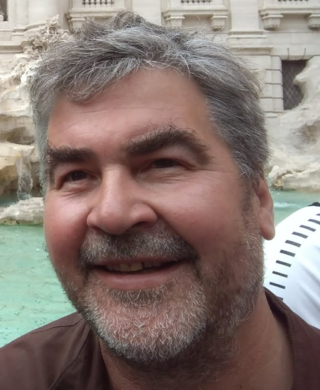Related Research Articles
The year 1971 in film involved some significant events.

The Mannheim-Heidelberg International Film Festival, often referred to by the German-language initialism IFFMH, is an annual film festival established in 1952 hosted jointly by the cities of Mannheim and Heidelberg in Baden-Württemberg, the southwest region of Germany.

Ilmar Raag is an Estonian media executive, actor, screenwriter and film director, best known for his socio-critical film The Class. He was CEO of Estonian Television from 2002 to 2005. He is a well known columnist in many prestigious Estonian newspapers. He has written many scripts and directed critically acclaimed films, notably August 1991 and The Class.
Hain Helde is an Estonian sprint canoer who competed from the mid-1990s to the early 2000s. He was eliminated in the semifinals of both the K-1 500 m and the K-1 1000 m events at the 1996 Summer Olympics in Atlanta. Four years later in Sydney, Helde was eliminated in the semifinals of the same events.
Veiko Õunpuu is an Estonian film director and screenwriter who is best known for his artistic movies Autumn Ball and The Temptation of St. Tony. Õunpuu's films are usually slow-paced artistic movies with eccentric characters.
Martti Soosaar was an Estonian journalist and writer.
Rein Raamat is an Estonian animation film director, artist and screenwriter. He is the first internationally successful Estonian animator and along with Elbert Tuganov is regarded as the "Father of Estonian Animation". He has directed many short animated films since the early 1970s and also produced over 20 documentary films.

In the Crosswind is a 2014 Estonian drama film directed by Martti Helde. It was screened in the Contemporary World Cinema section at the 2014 Toronto International Film Festival. The film is about the forced deportation by Stalin's Soviet Union of an Estonian family to Siberia in the June deportation. It is based on a real-life diary from the period and uses a long sequence of "living tableaus" for the main narrative to invoke the frozen nature of traumatizing events in an individual memory.

Martti Nõmme is an Estonian ski jumper. He was born in Võru.
Lauri Lagle is an Estonian stage and film actor, screenwriter, stage producer, director and playwright.
Ingrid Isotamm is an Estonian stage, film, radio and television actress.

Andres Puustusmaa is an Estonian film director, actor, screenwriter, professor, and photographer who began his career in the early 1990s. He has worked extensively in his native Estonia, as well as in Russia.
Astrid Lepa was an Estonian stage, television, voice, and film actress, screenwriter, and television director whose career began in the 1940s and ended shortly before her death, spanning over sixty years.
Rea Lest-Liik, is an Estonian stage and film actress who came to prominence in the 2010s following leading roles in several Estonian films, such as Ema (2016), Mehetapja/Süütu/Vari (2017), and November (2017). She has won several awards for stage and film roles.
Rain Tolk is an Estonian actor, screenwriter and film director.
Maria Avdjuško is an Estonian actress, film producer, director and screenwriter.

Mart Kivastik is an Estonian film director, screenwriter, playwright and novelist.

Andres Maimik is an Estonian film director, producer, screenwriter, cinematographer and actor.
The 54th Karlovy Vary International Film Festival took place from June 28 to July 6, 2019, in Karlovy Vary, Czech Republic.
Martti is a Finnish and Estonian masculine given name. The name is the Finnish equivalent of the Latin name Martinus and originally refers to Mars, the god of war. It is a cognate of the name Martin. As of 1 January 2023, 531 men in Estonia have the first name Martti, making it the 275th most popular male name in the country.
References
- 1 2 "Martti Helde - Eesti filmi andmebaas". www.efis.ee. Retrieved 29 April 2021.